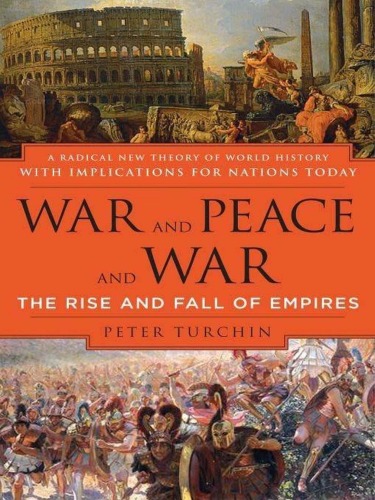
War and Peace and War
The Rise and Fall of Empires
کتاب های مرتبط
- اطلاعات
- نقد و بررسی
- دیدگاه کاربران
نقد و بررسی

August 29, 2005
Ranging freely from the founding of Rome to 17th-century North America, this provocative essay in "cliodynamics" ("the study of processes that change with time") searches for scientific regularities that underlie history. Ecologist and mathematician Turchin grounds his theory of preindustrial empires in the Arabic concept of asabiya,
meaning a society's capacity for collective action. Empires germinate, he contends, along "meta-ethnic frontiers" where conflict between starkly alien peoples—Roman farmers vs. Celtic tribesmen in the fifth and sixth centuries B.C., say—fosters the social solidarity and discipline that empire building requires. Success, he continues, leads inexorably to decline: stability and prosperity produce overpopulation and a Malthusian crisis in which the struggle for scarce resources undermines social solidarity and triggers imperial collapse. Turchin's straining for scientific exactitude occasionally overreaches, yielding a proliferation of historical "cycles" of fuzzy periodicity, riddled with fudge factors like "mathematical chaos." Still, Turchin's focus on social cooperation as the key to history is a fruitful one, and his ideas generate many fascinating discussions of a wide variety of historical episodes, rendered in lucid, vigorous prose. The result, much in the vein of Jared Diamond's Guns, Germs and Steel
, is a stimulating revisionist overview of world history. Maps.

























دیدگاه کاربران